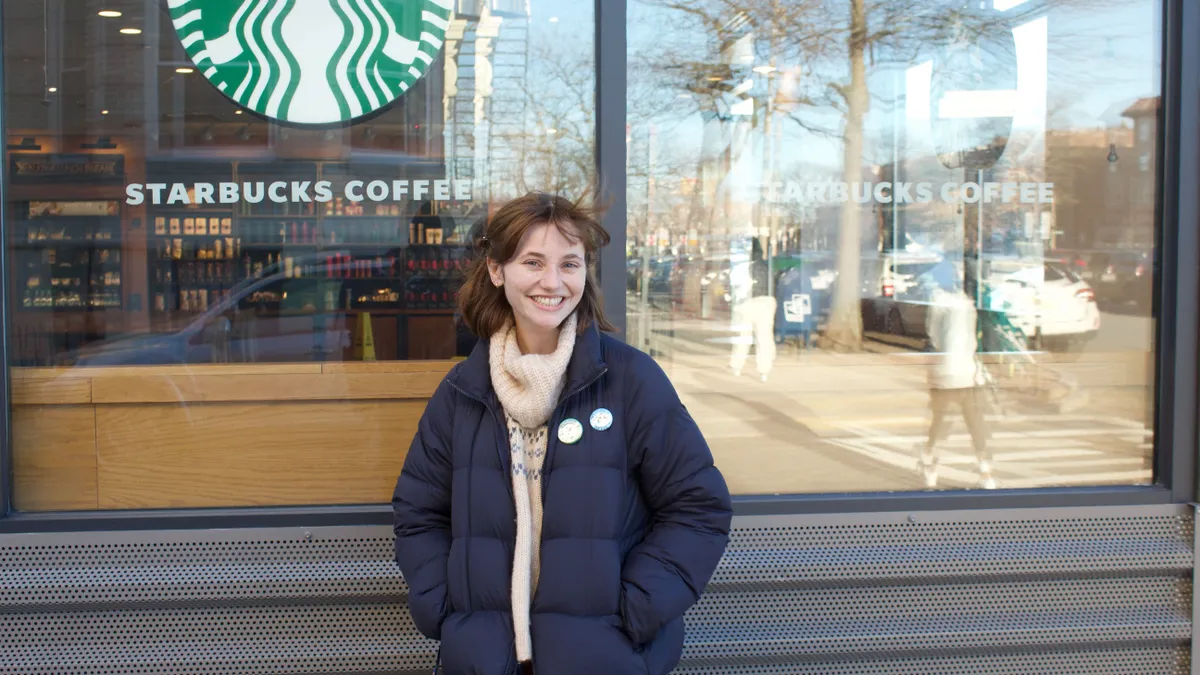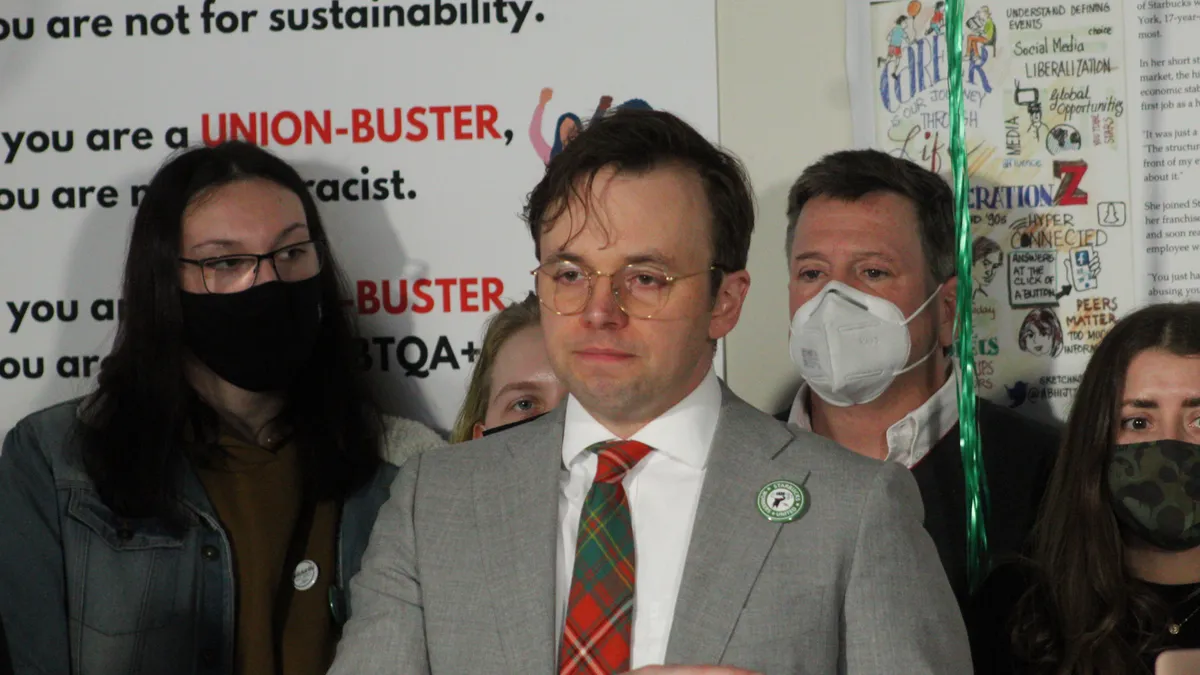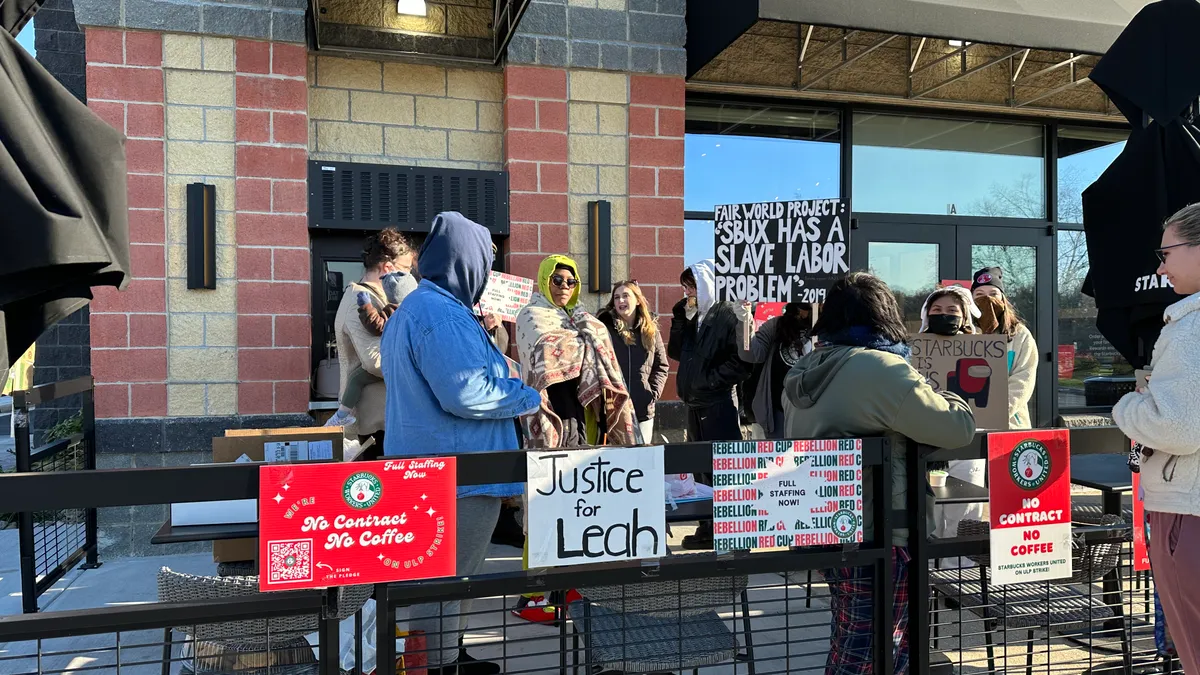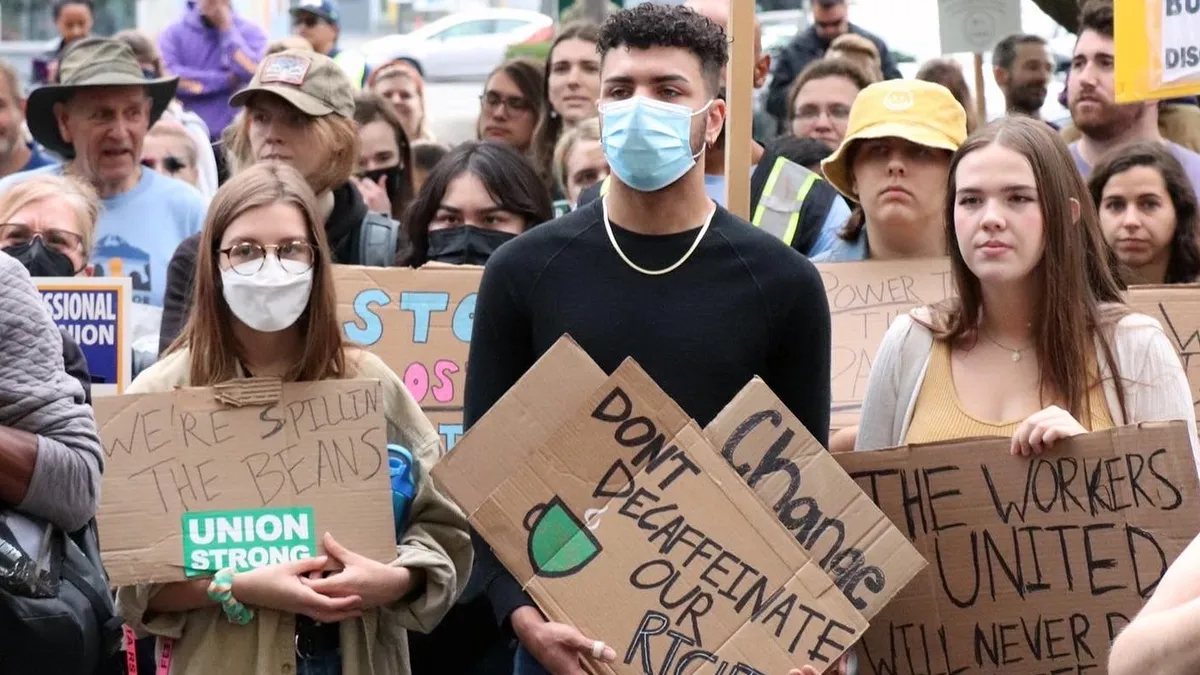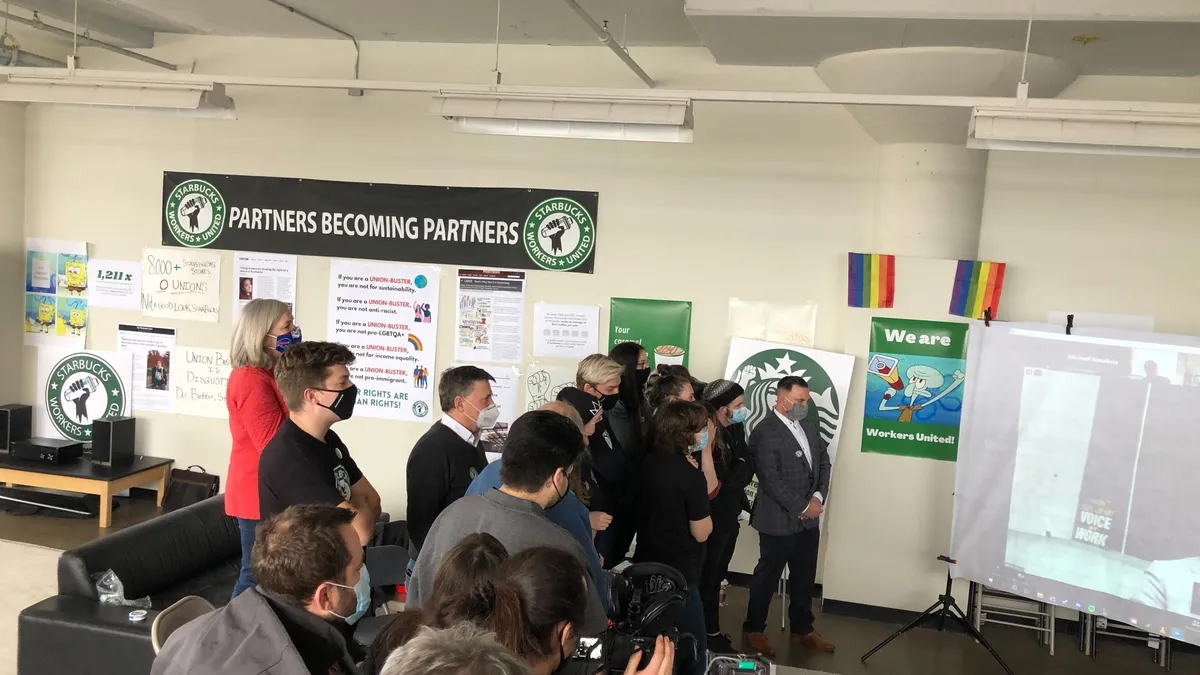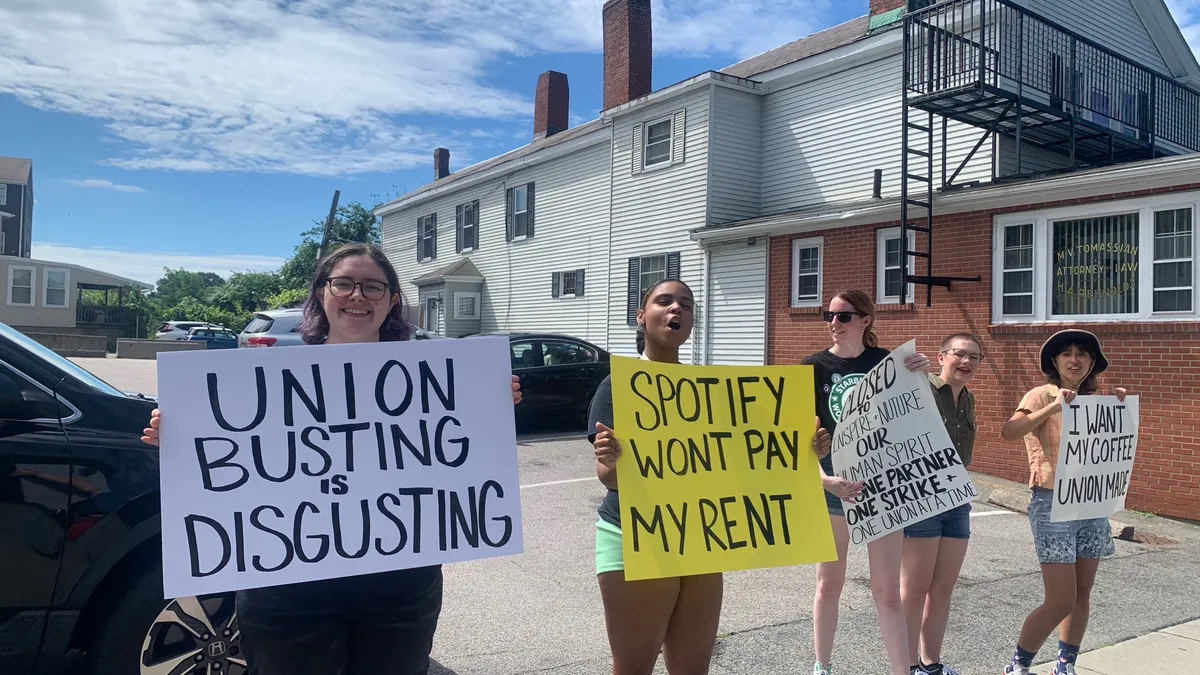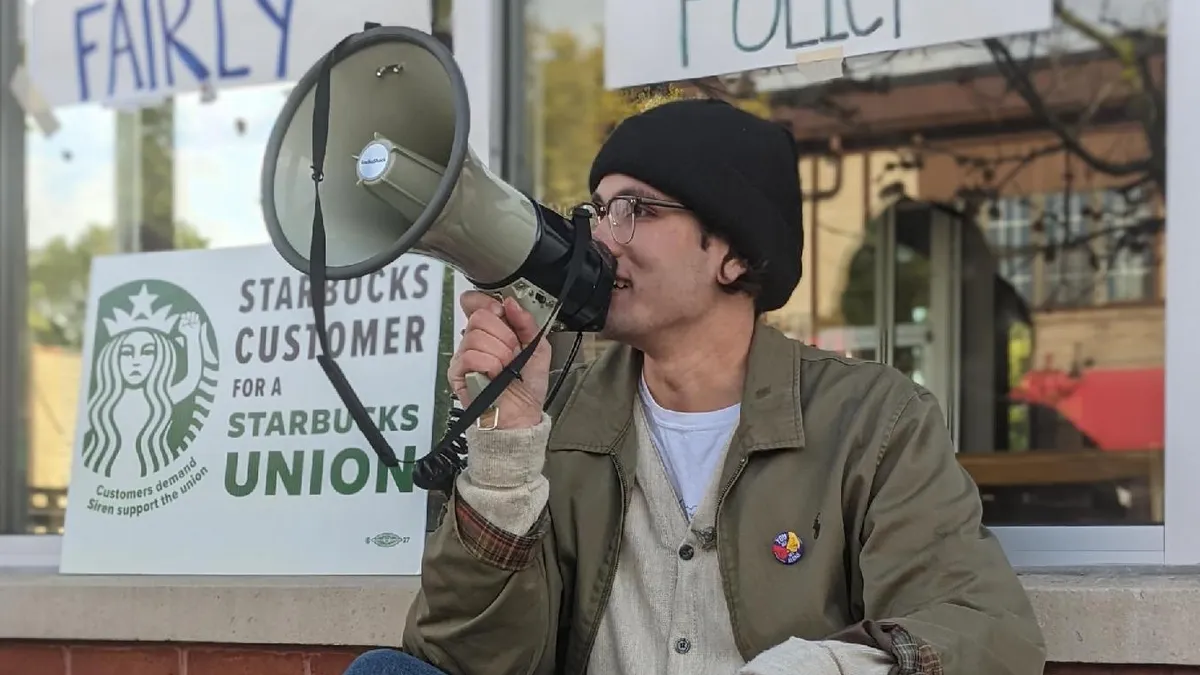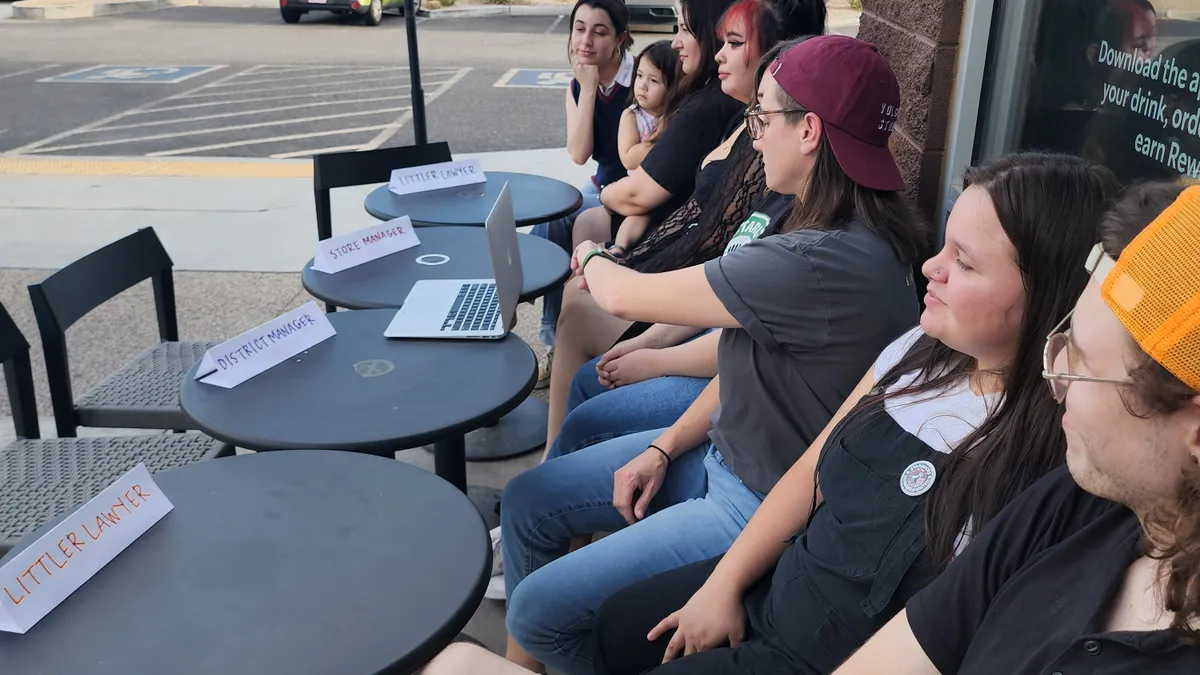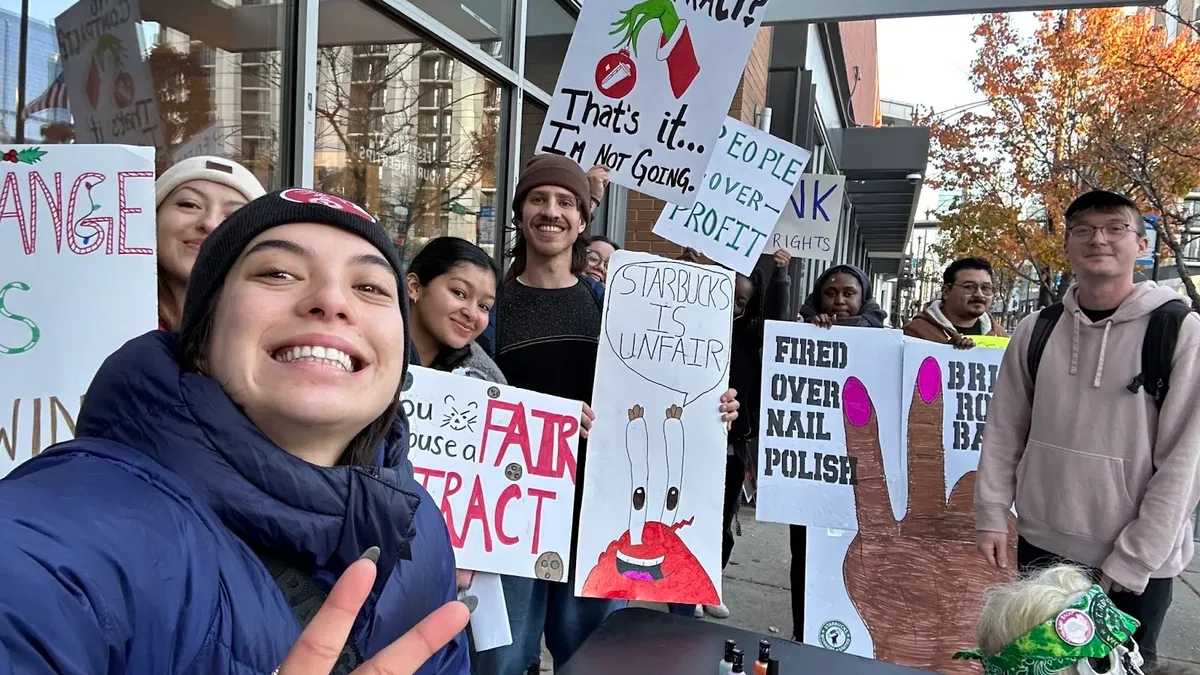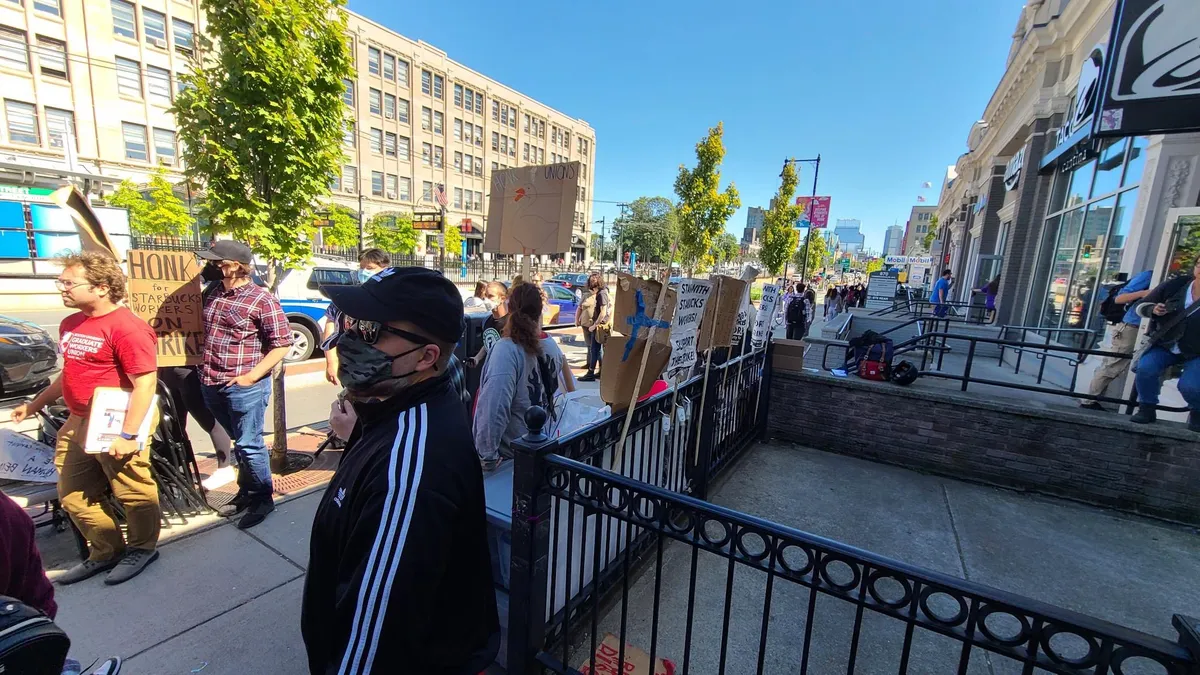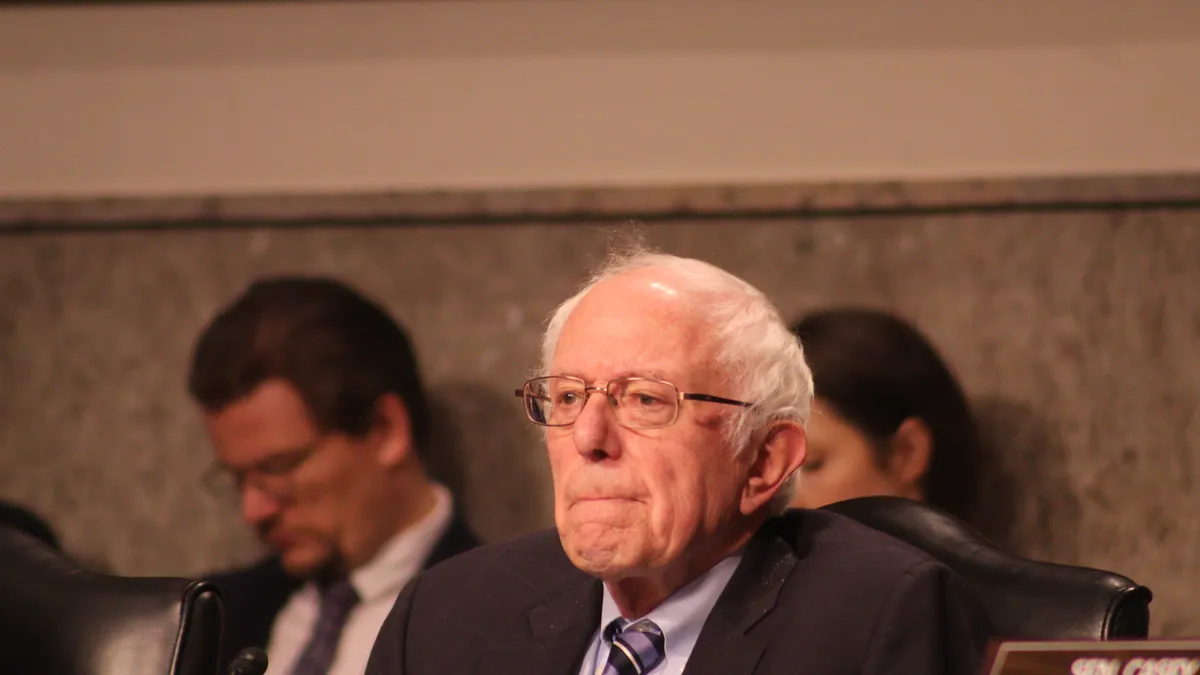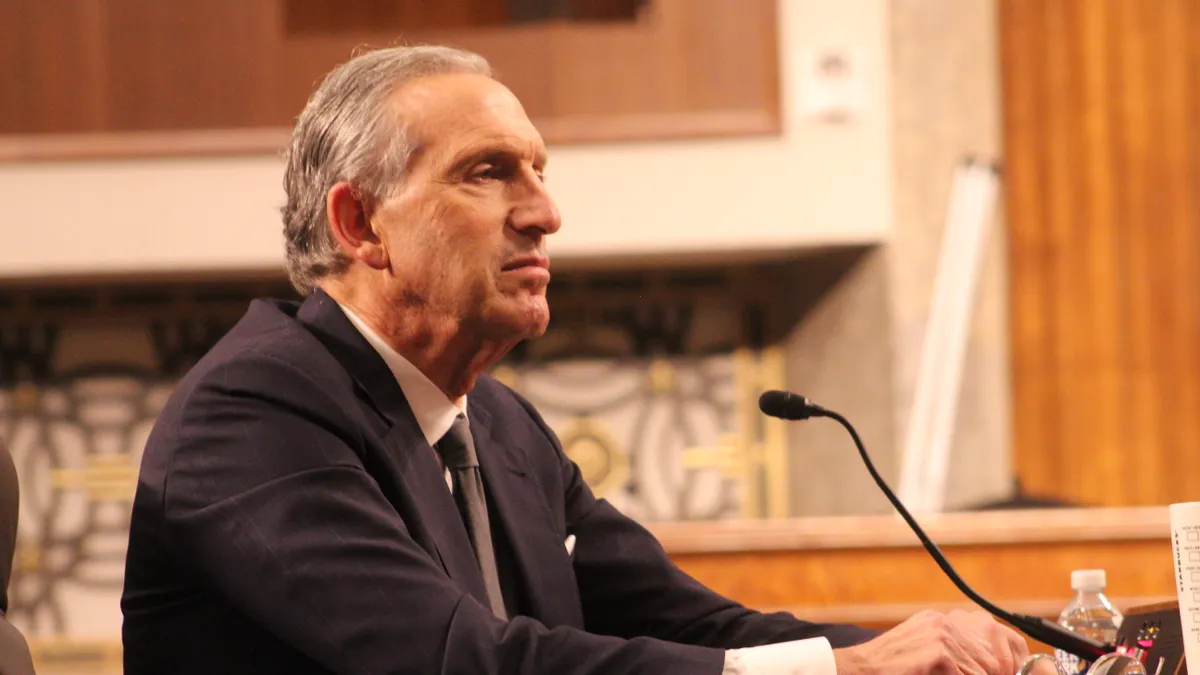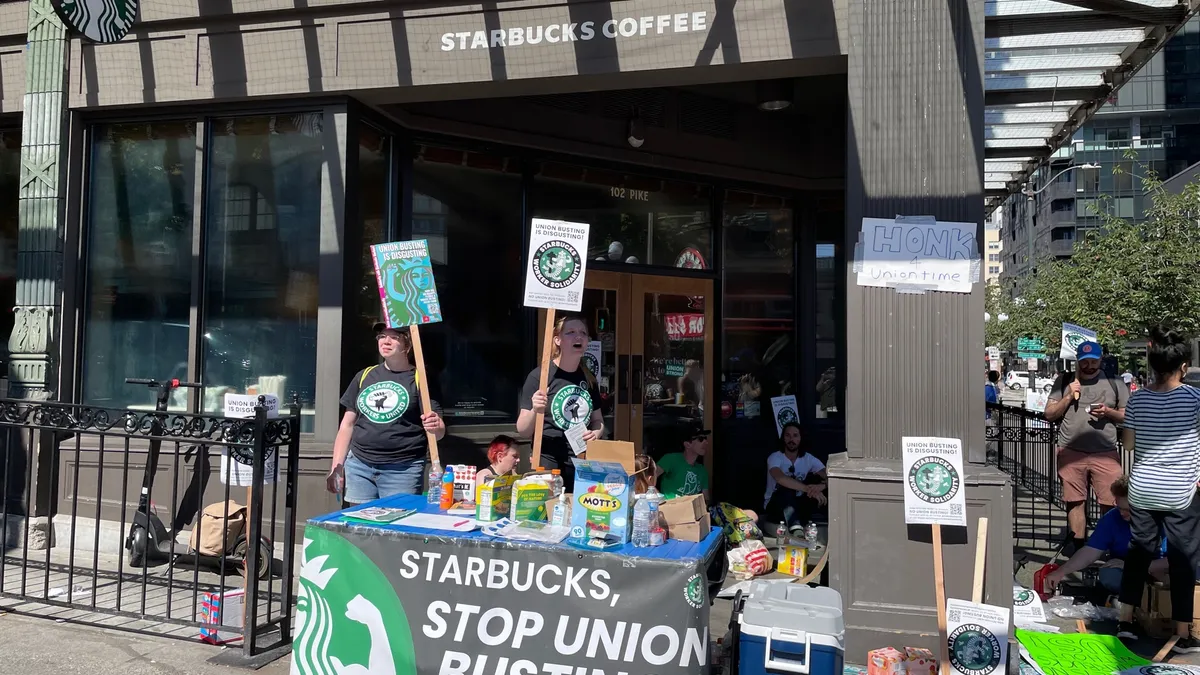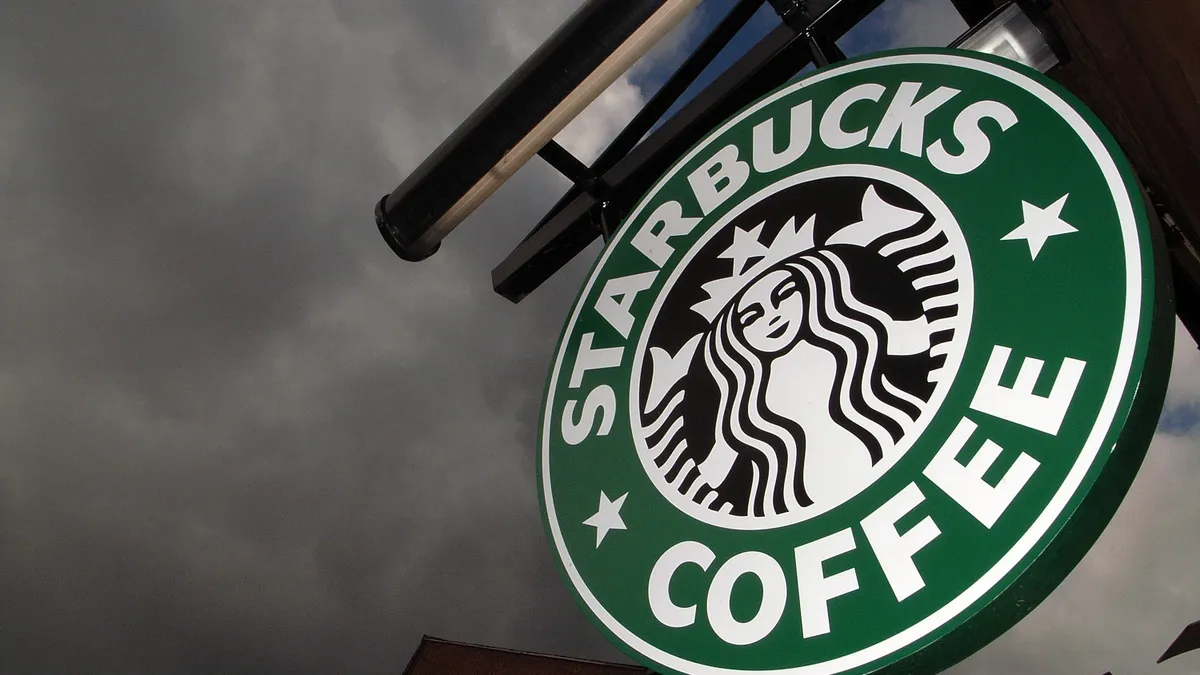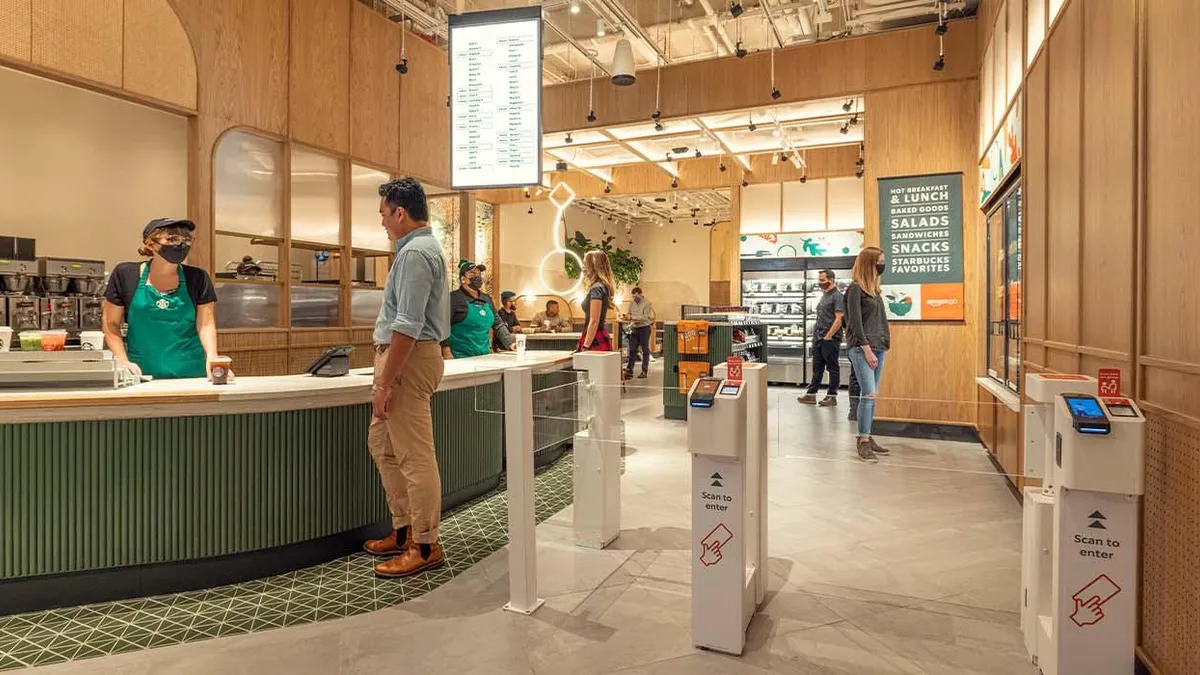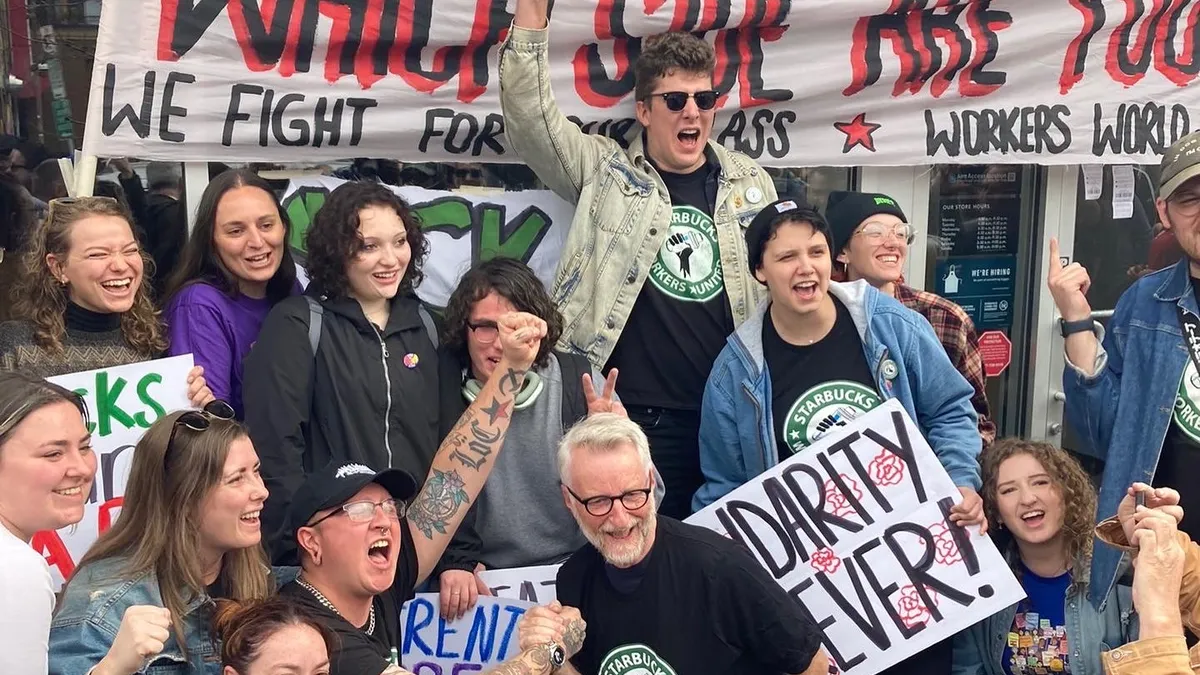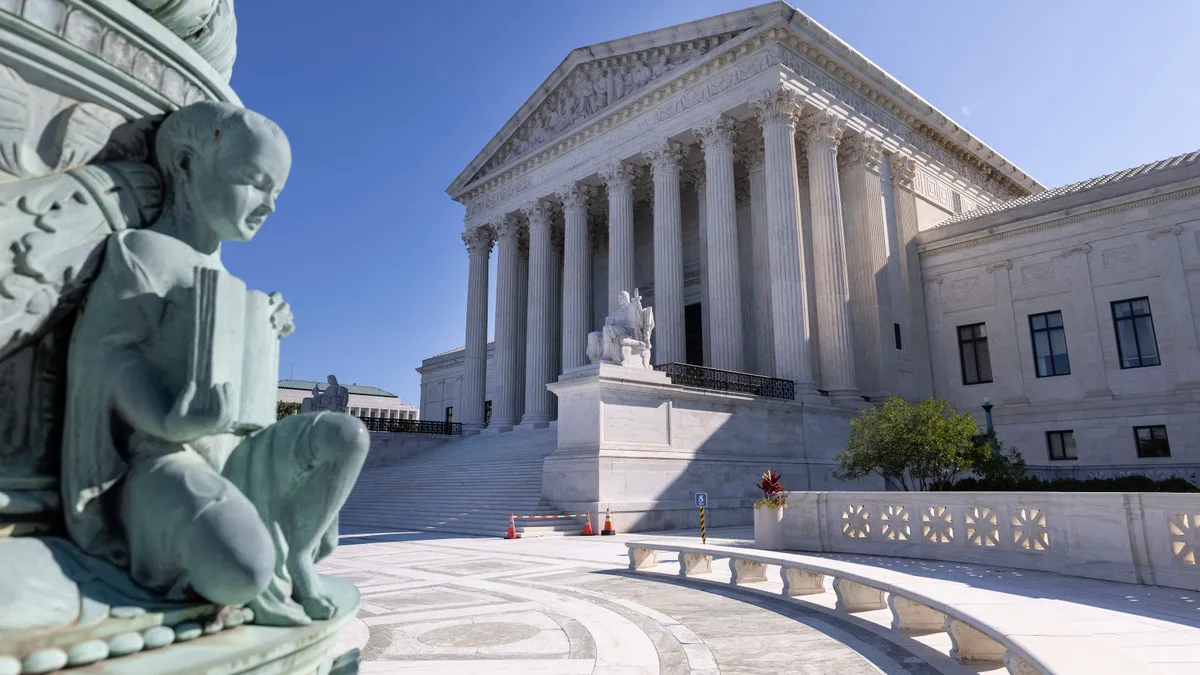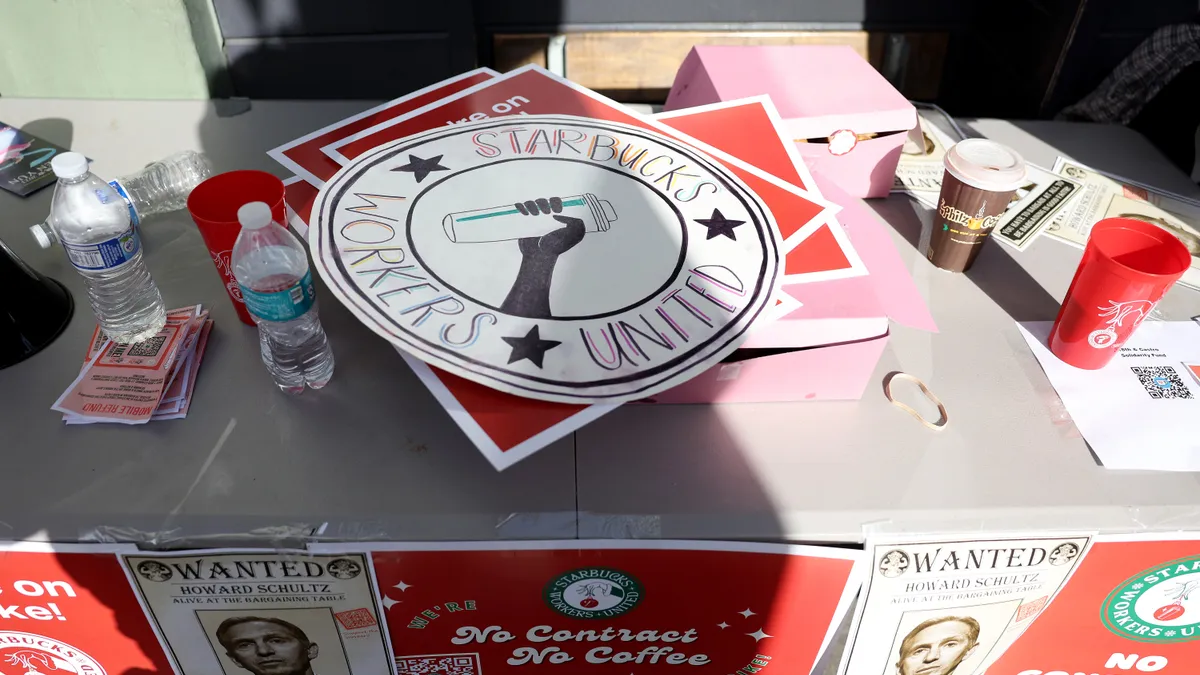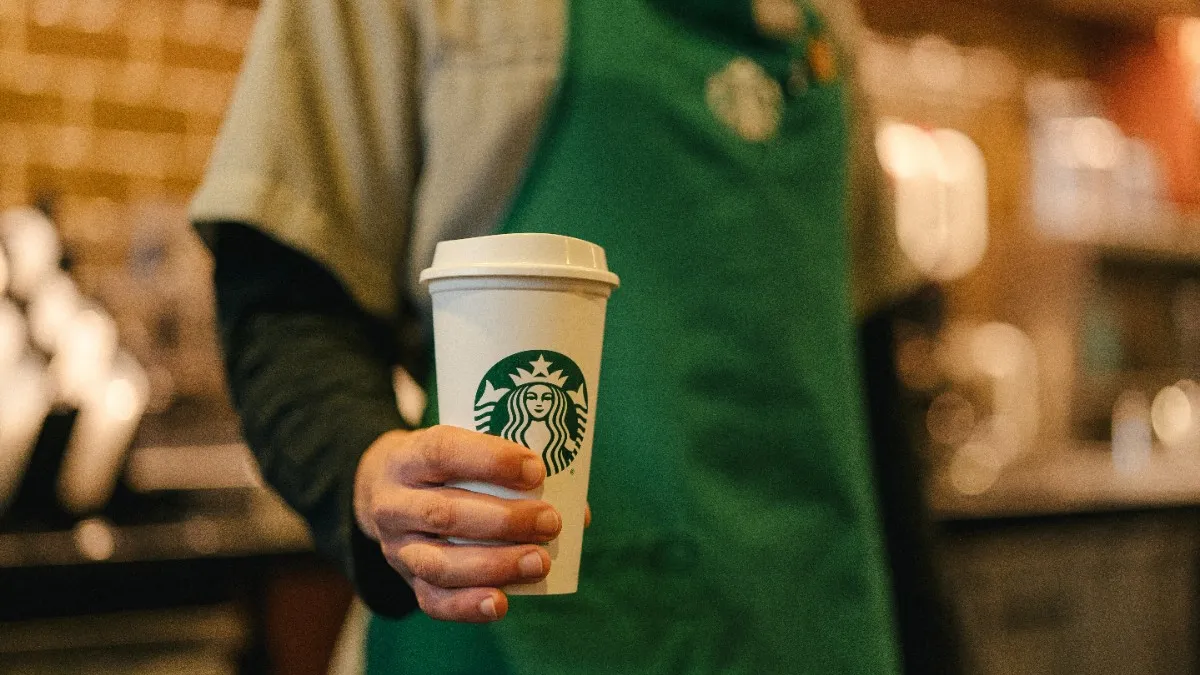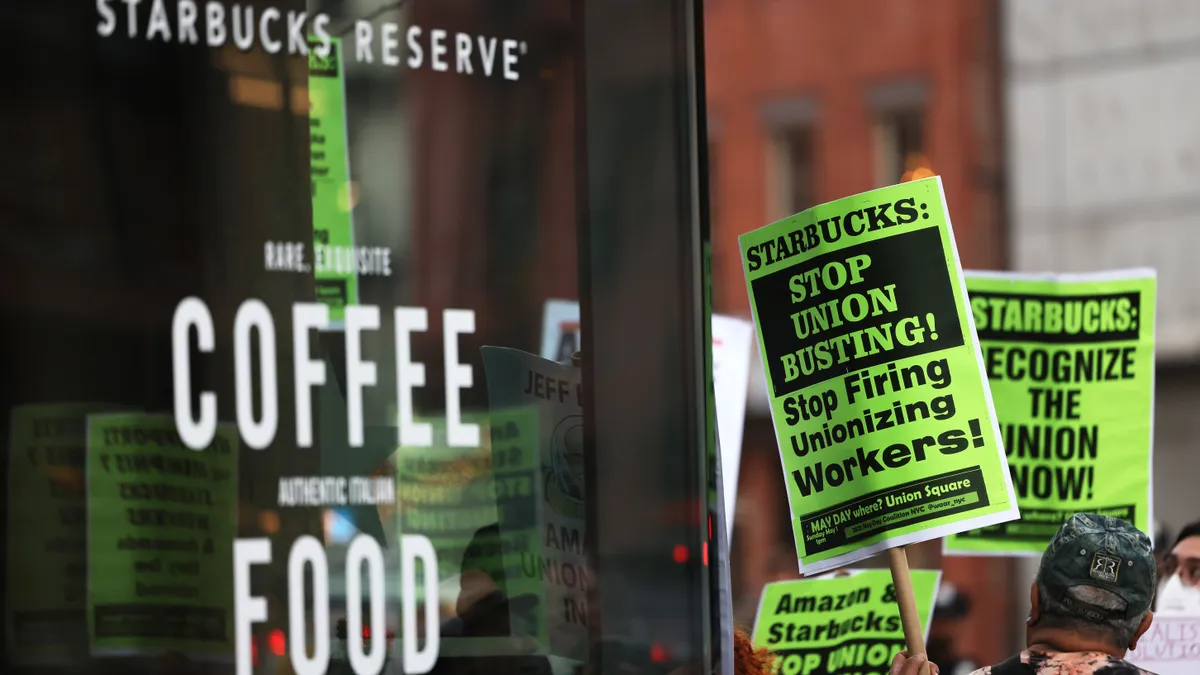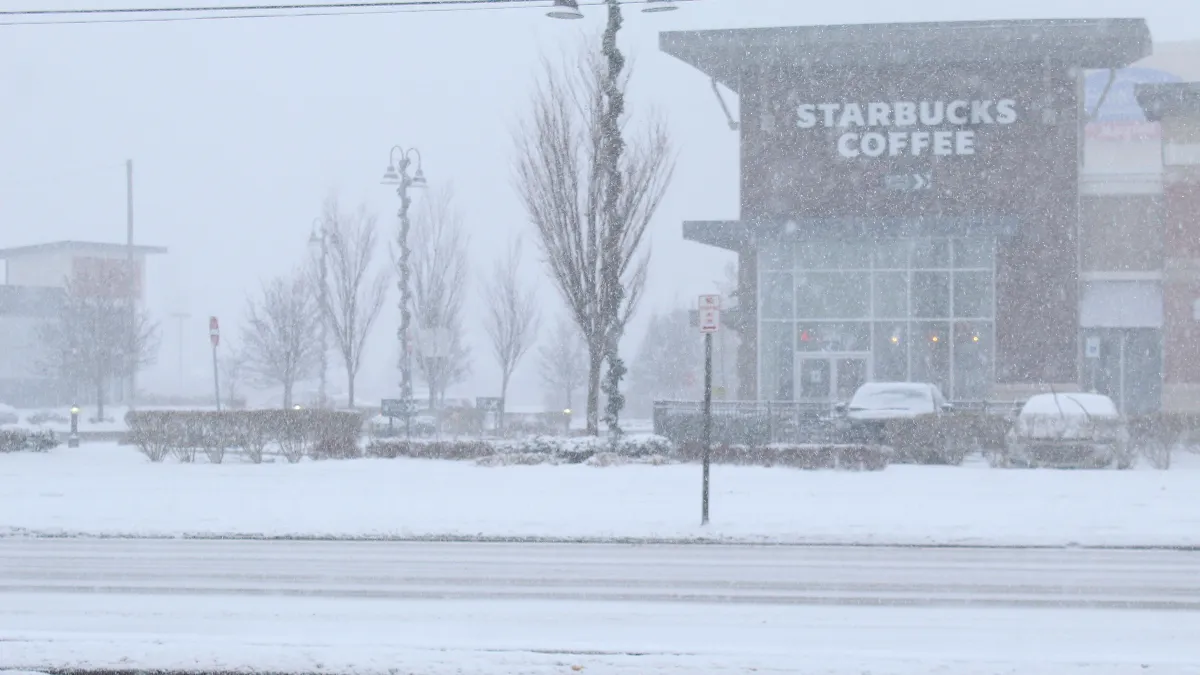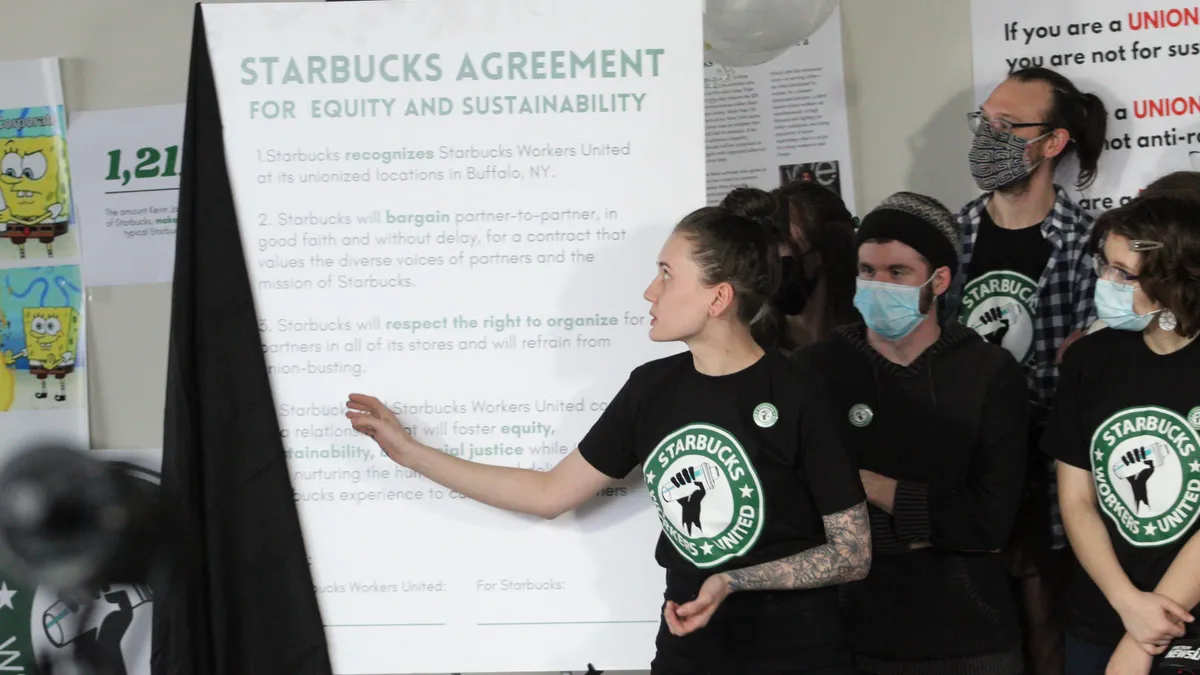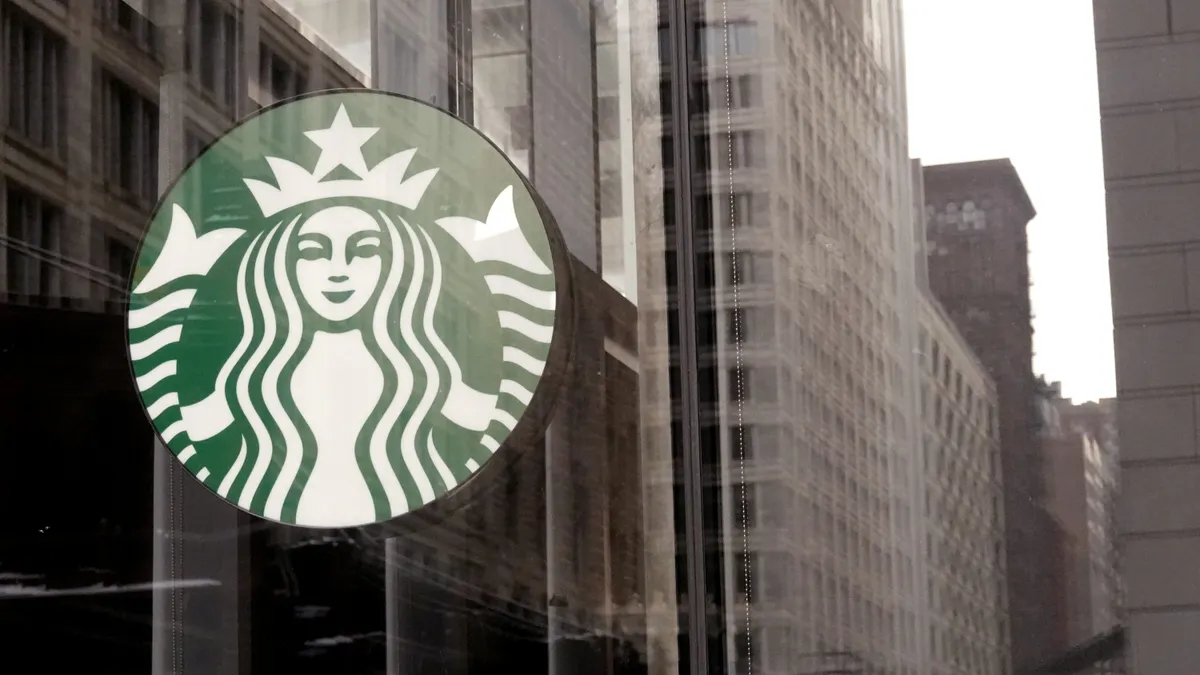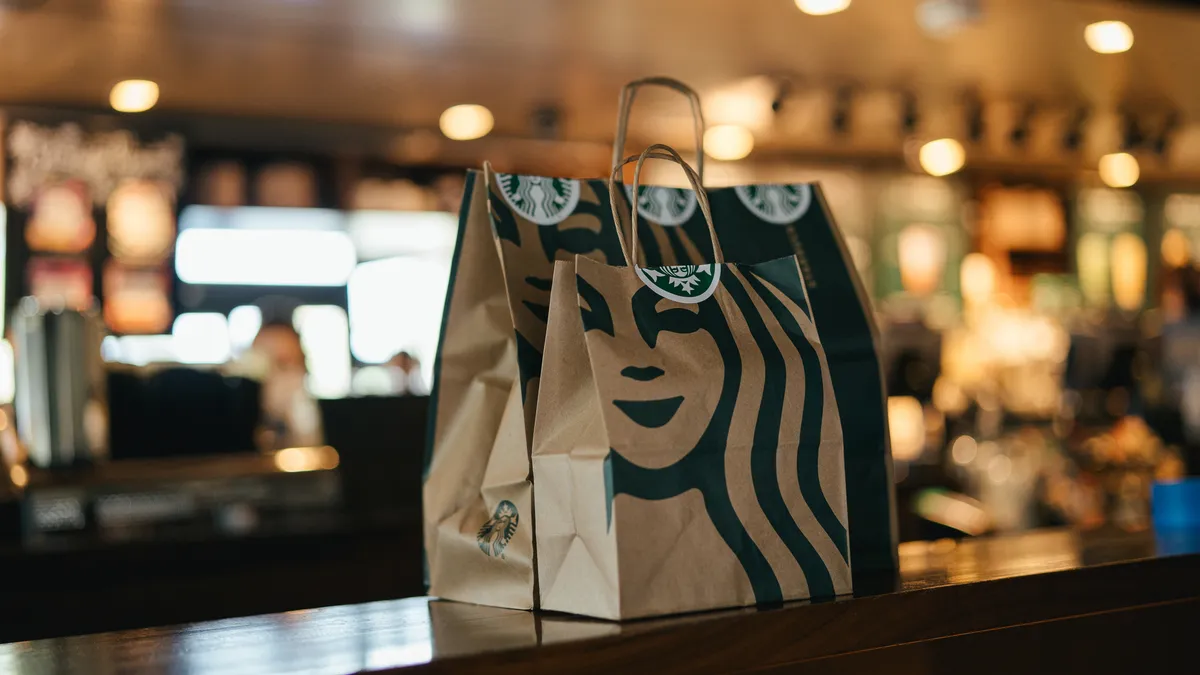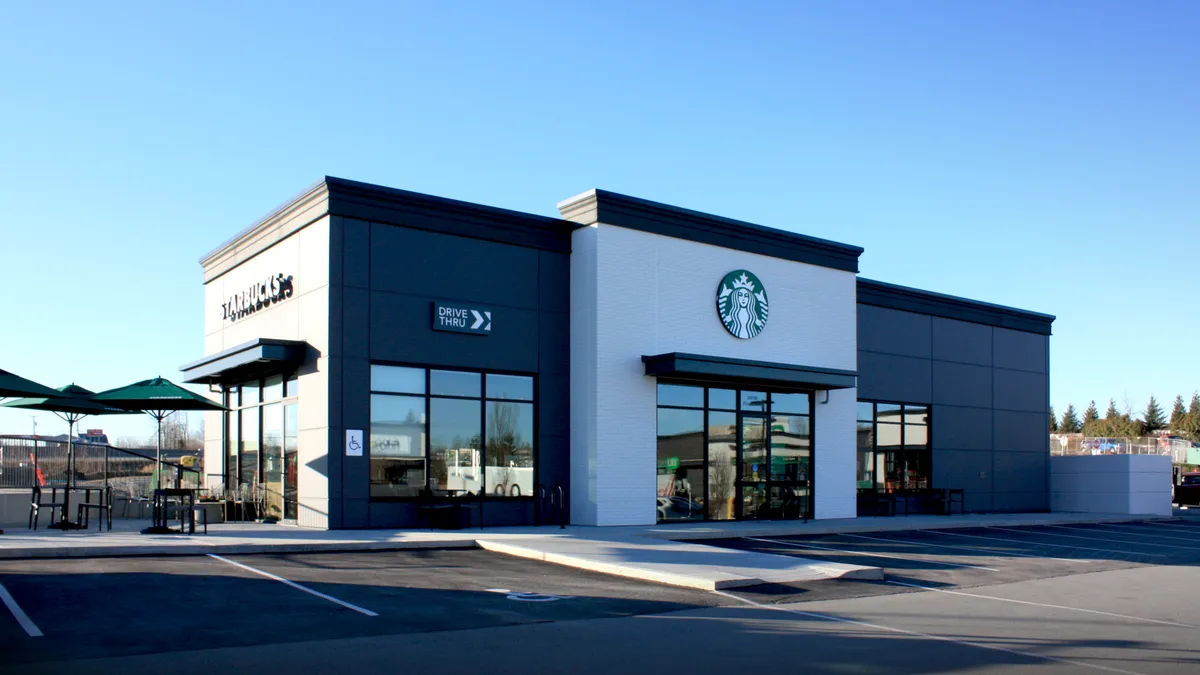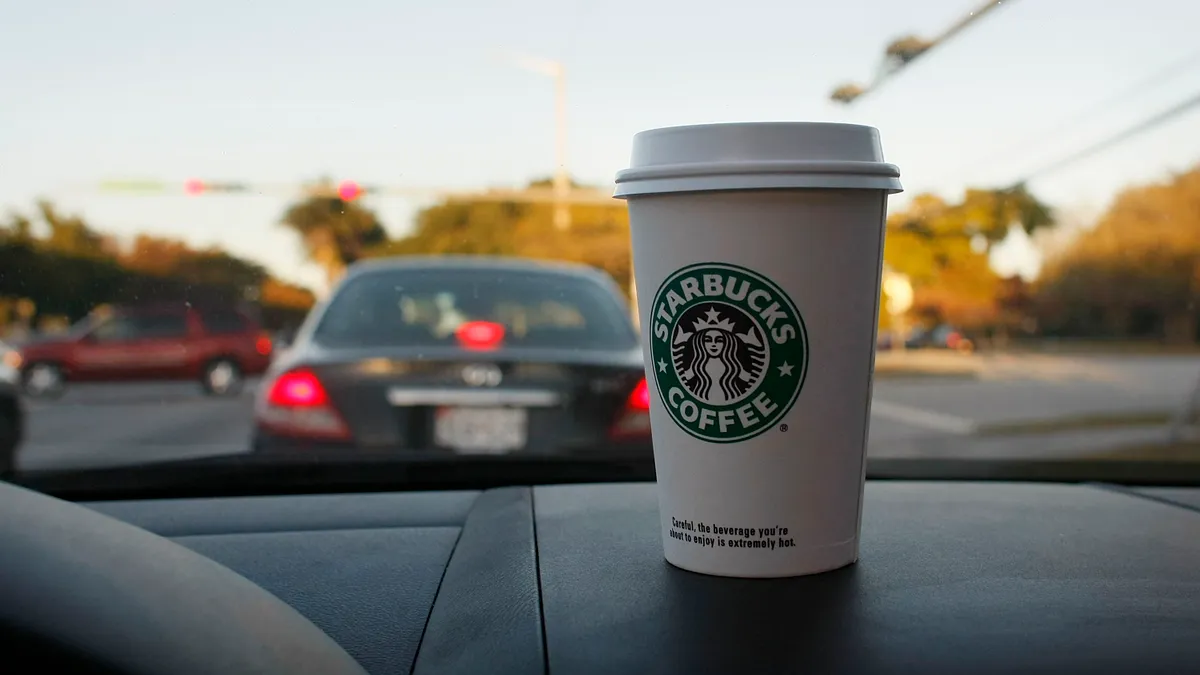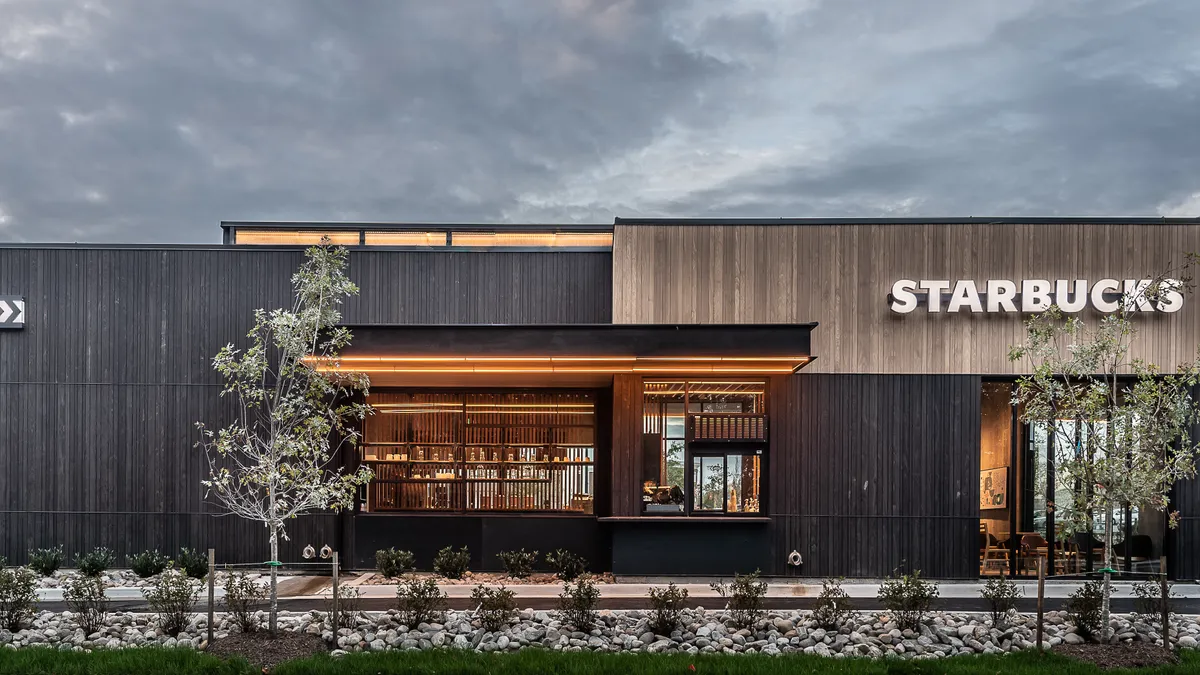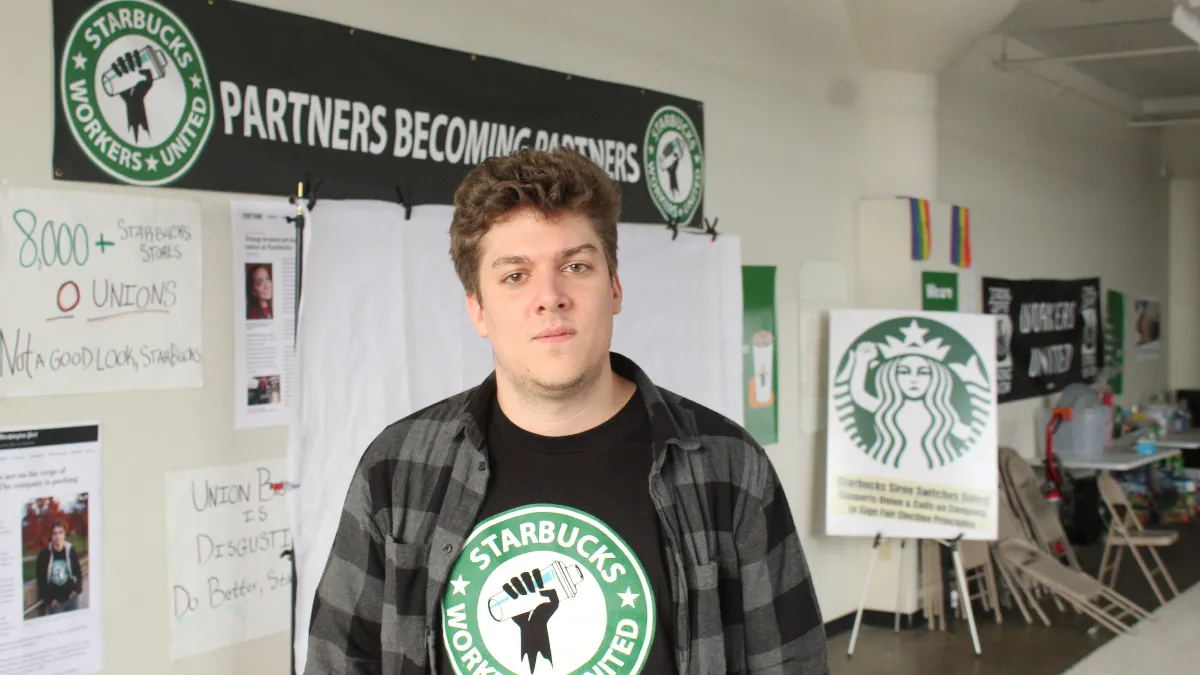Dive Brief:
- Workers United, the union backing the Starbucks Workers United campaign, will commit $1 million to start a strike fund for Starbucks workers, the organization announced Thursday in an email to Restaurant Dive. The fund will be used to pay workers for time lost and other benefits while on strike.
- More than 100 Starbucks stores have voted to unionize, according to an email sent by the National Labor Relations Board, with at least 150 more set to hold votes in the coming months.
- Kylah Clay, a Starbucks barista and union organizer in Boston pictured above, said workers have already held strikes in at least 27 stores, including a number of stores that haven't yet voted to unionize.
Dive Insight:
While $1 million may seem like a small sum, the money is a significant amount for a new organizing drive, John Logan, professor and director of labor and employment studies at San Francisco State University, wrote in an email. Workers United said this initial contribution is seed money, and the American Federation of Teachers has already provided a $50,000 contribution in support.
Alleged unfair labor practices at Starbucks are drawing regulatory scrutiny, and the NLRB regional office in Buffalo, New York has already charged Starbucks with over 200 labor law violations, but it could be years before Starbucks faces any consequences for potential union busting. Strikes, on the other hand, could have a more immediate impact on the chain.
According to Clay, the longest strikes of the campaign lasted five days in Overland Park, Kansas, and Buffalo, New York. Most have been shorter, but Logan said the number of strikes has increased in recent weeks.
"Strikes against [unfair labor practices] and poor working conditions started in Buffalo," Logan wrote in an email. "But it has escalated significantly in the last few weeks, with at least seven strikes in May."
The final week of May saw workers at stores across the country participate in strike actions, including in states that have low private sector union density and low participation in strikes, Logan wrote.
"In the past week, we've seen strikes in Seattle, Portland, Boston, Leesburg, [Virginia] and Columbia, [South Carolina]," Logan wrote.
Clay said the strike fund would lessen the fear workers experience when organizing.
"I'm really excited for partners who will be joining us at the bargaining table knowing that they can hold Starbucks accountable and not fear the loss of their job or their livelihood," Clay said.
Starbucks may face more strikes as the organizing drive continues and as more stores join bargaining efforts, Clay said.
"Whether a whole bunch of stores strike will be down to what decisions corporate makes moving forward," Clay said. "More and more stores that are willing to take collective action, based off of their their treatment at work, whether that be because of retaliation or union busting tactics."
Starbucks did respond to a request for comment.
Logan said strike benefits are generally determined by a vote of union membership, and are related to median worker pay. Strike pay for Teamsters members, for example, is a minimum of $150 a week.
According to a monthly analysis of NLRB records published by Matt Bruenig at the People's Policy Project, Starbucks Workers United has organized about 2,815 workers in 102 shops. Stretched across those workers, the initial $1 million from Workers United would yield about $355 per worker. According to NLRB records, at least 150 stores are set to vote in coming months, raising the possibility of more short strikes against Starbucks as Workers United organizers look towards a first contract.



